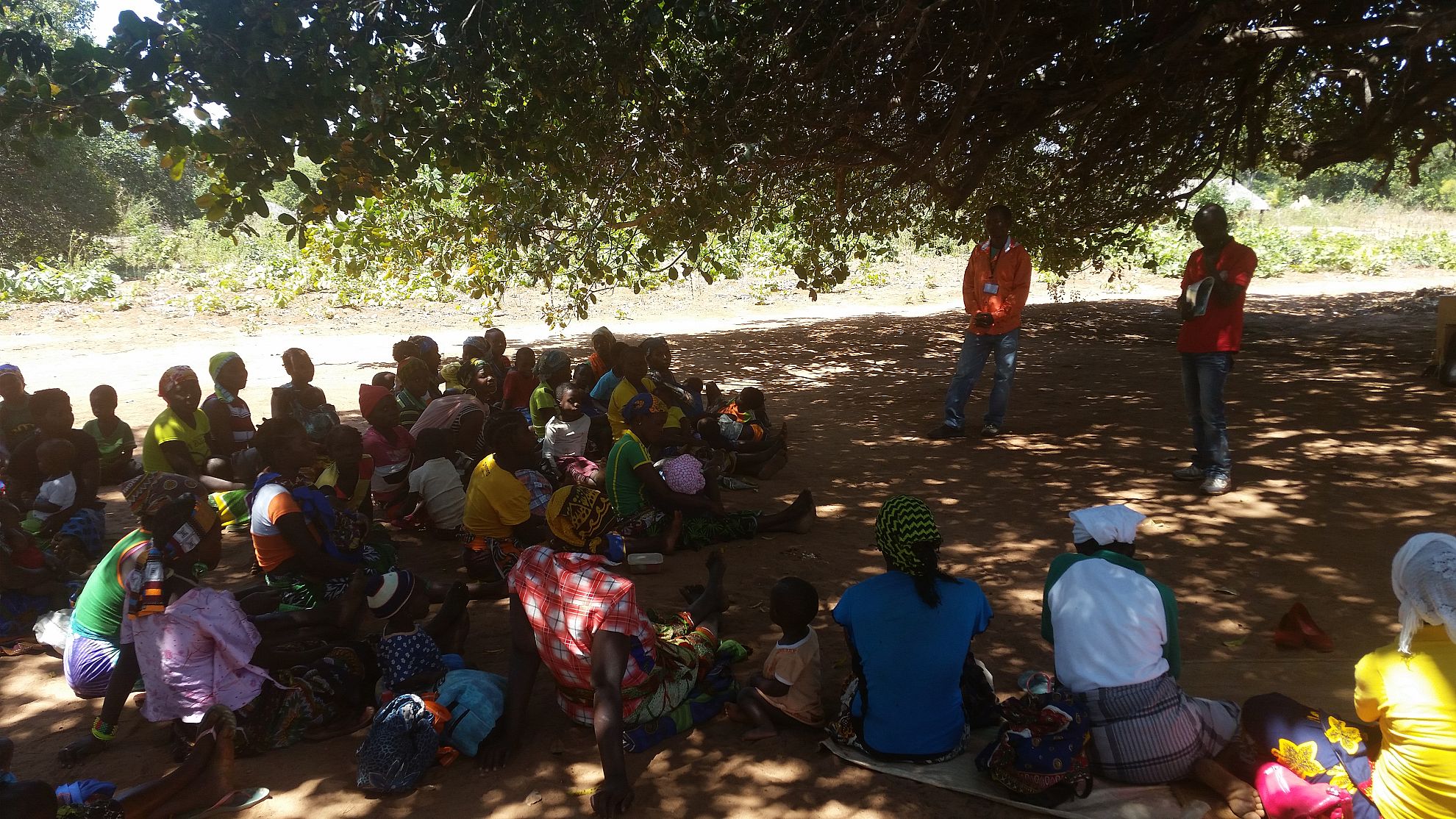
Communities take good health into their own hands
17 November 2016Maputo, 17 November 2016 – A community dialogue approach to the prevention and treatment of schistosomiasis, one of a group of neglected tropical diseases (NTDs), has successfully increased community ownership of this health issue in Mozambique’s northern province of Nampula.
The research findings, reported on November 15th at a dissemination event co-hosted by Malaria Consortium and the Ministry of Health Mozambique, revealed that the approach has increased the number of community members taking preventative measures and seeking treatment.
A lack of community-based health programmes and social mobilisation strategies are among the obstacles in preventing and eradicating NTDs in Mozambique. The inhabitants of the northern province of Nampula, where the community dialogues approach was tested, are particularly affected. Some districts have schistosomiasis infection rates as high as 80 percent.
The DFID funded research programme, COMDIS-HSD, studied the approach. It analysed practical models for improving community participation in health promotion, improving access to and demand for NTD control interventions, and the development of innovative solutions to address key challenges for strengthening community dialogue platforms in the future.
“The approach has been very successful,” Malaria Consortium Public Health Communications Specialist, Sandrine Martin, stated after the event. “By providing a platform for community members to share information, build skills and gain control over decisions concerning their health, more people are now participating in behaviour change activities relating to schistosomiasis.”
The meeting coincided with the American Society of Tropical Medical and Hygiene’s 65th annual meeting in Atlanta, where Malaria Consortium COMDIS-HSD Project Coordinator, Christian Rassi, presented the same findings to an audience of researchers, policy makers and implementers.
“The community dialogue approach is practical and highly effective because it does not require intensive programmatic input beyond developing materials and training facilitators” Rassi reported. “It is successful because the dialogues are community-led and because it trusts communities to find locally relevant solutions to health issues affecting the community.”
Related content
3 February 2016
Community dialogues for child health: Results from a qualitative process evaluation in three countries
10 June 2014Community dialogues for child health: Results from a process evaluation in three countries
15 November 2016Community dialogues for prevention and control of schistosomiasis in Mozambique
Latest news
- International summit calls for AMR accountability in public health interventions21st March 2024
- Global SMC community celebrates new milestone at SMC Alliance Annual Meeting in Nigeria6th March 2024
- Scaling up key interventions could halve pneumonia-related childhood mortality13th February 2024
- Malaria Consortium and eGov Foundation join Mozambique’s national malaria programme to digitalise seasonal malaria chemoprevention campaigns8th February 2024
- World’s first malaria vaccine rollout launched in Cameroon22nd January 2024
- Digital solutions driving equitable access to health6th December 2023